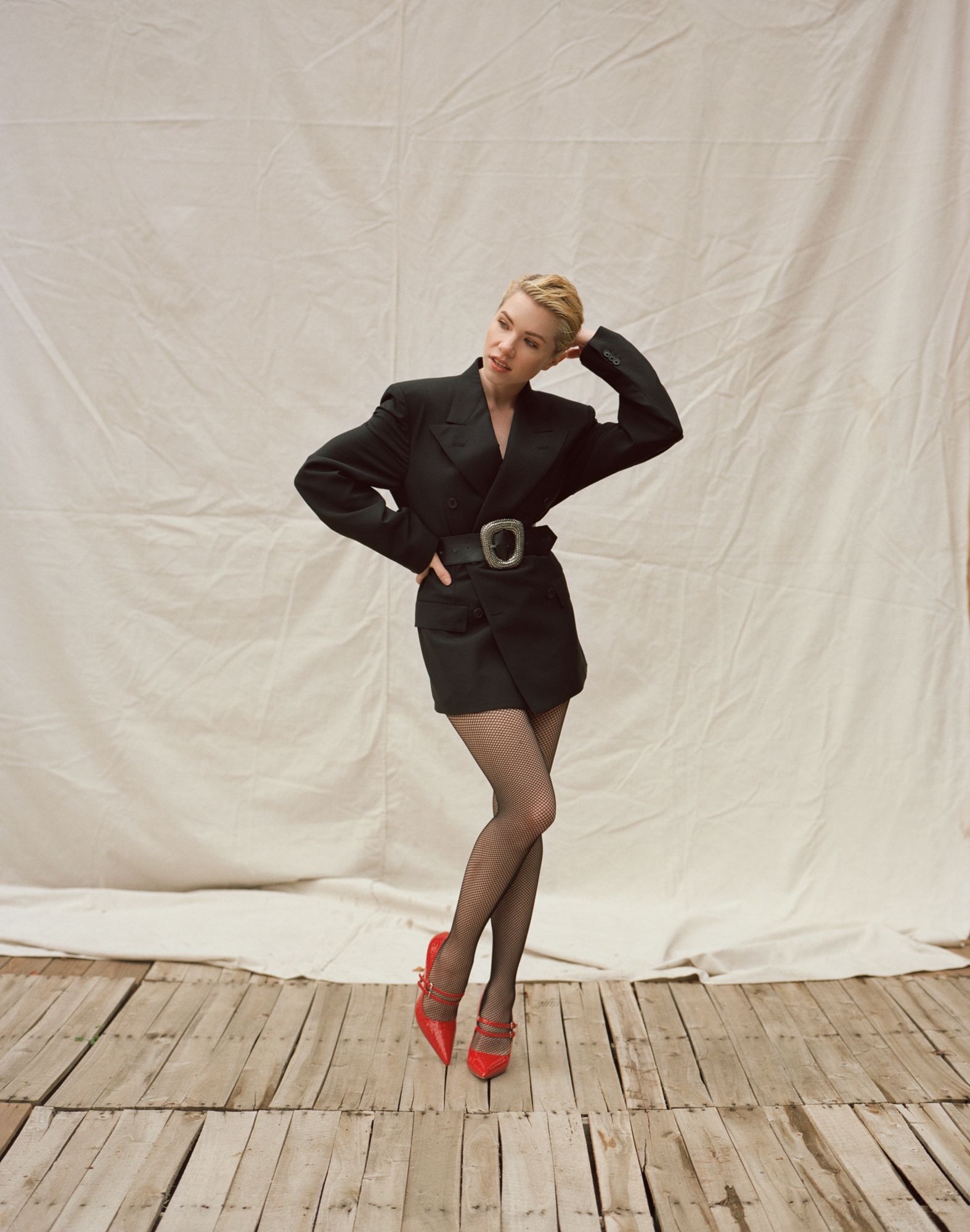Heroes: Carly Rae Jepsen
The 21st-century pop icon talks internet virality and her forthcoming album.
This feature appears in the pages of V118, our Spring Summer 2019 issue, on newsstands soon!
What does a pop song sound like? The Library of Congress’s National Recording Registry lists The Freewheelin’ Bob Dylan as “Pop (Post-1955),” a category that would also technically include, say, Kesha’s “Tik Tok.” The minute-to-minute shifts in what is “popular” make defining pop music by its sound a slippery endeavor, but prolific Canadian import Carly Rae Jepsen may have cracked the code. The daughter of music-minded school principals, Jepsen acquired the tools for pop superstardom early in life. “My dad was a big part of my songwriting story,” she says. “He taught me all those Elvis Presley cords that you can [use to] create any pop song.”
If pop music can be reduced to a few simple chords, Jepsen has milked them for all they’re worth. She is known for writing hundreds of songs before whittling them down to a finished diamond-cut product; her three pop albums, Kiss, Emotion and Emotion: Side B, produced by the likes of Max Martin and Dev Hynes, are regarded as unimpeachable by critics and fans. Still, latecomers expressing surprise upon discovering Jepsen is a common refrain online, often putting members of the cult of Carly Rae (a territorial, heavily queer group) in defense-mode, insisting that “Call Me Maybe,” Jepsen’s wildly popular breakout single, was no fluke. (At last year’s Lollapalooza, a fan played out this dynamic IRL by presenting Jepsen with a sword, inspired by an online petition stating, “I like her and think she should have one.”)

3 Jepsen may have no intention of becoming her generation’s Bob Dylan, but the word-of-mouth quality of her post–”Call Me Maybe” fandom, and her folky songwriting roots, invite certain parallels. Jepsen’s first-ever song, she says, was more rooted in protest than pop: “The hook went, ‘They’re cutting down big tree, and I wonder why it has to be this way,’” she recalls with laughter. “Then it goes into, ‘Don’t let them do this!’ So bad but so funny.” It was in this soft-folk mold that she auditioned for Canadian Idol in 2007. “People in my corner were like, ‘Is that what you really want to do? A singing television show? Is that the vibe?’” says Jepsen. “I was like, “‘Beggars can’t be choosers.’ I was kind of desperate at that time.” Her subsequent debut album Tug of War’s sunny, Sheryl Crow–like take on relationship woes (and a “Sunshine on My Shoulders” cover to boot) didn’t make her an overnight sensation, but a chance pivot to a purer form of pop would.
“I was like, ‘We can’t say that, it’s too cutesy,’” Jepsen says of writing “Call Me Maybe,” Tug of War’s follow-up. “I fought tooth and nail for [another single] but luckily friends, family, and my label said, ‘We really think this is the right move.’” As the lore goes, Justin Bieber caught the song on Canadian radio, later calling it “possibly the catchiest song I’ve ever heard lol” on Twitter. The shoutout catapulted it to become the first debut by a female artist to land atop the US charts since Kesha’s “Tik Tok,” and eventually move 18 million copies.
But charts have little to do with Jepsen’s drive. Of fans’ expectations, Jepsen says “Overwriting—saying, ‘Let’s just put in a pound of flesh,’ is probably a reaction to that.” Her fifth album, out this summer, aims to live up to both expectations and artistic integrity. While she channeled her own virality by casting meme creator Mark Kanemura in the video for first single “Party for One,” she’s kept the songwriting process closer to the vest. “This is the year that I am ready to say, ‘I’ve done it, now let’s go and see what happens.’”